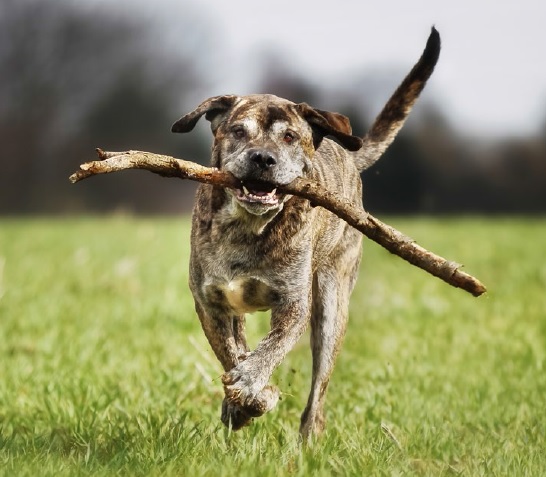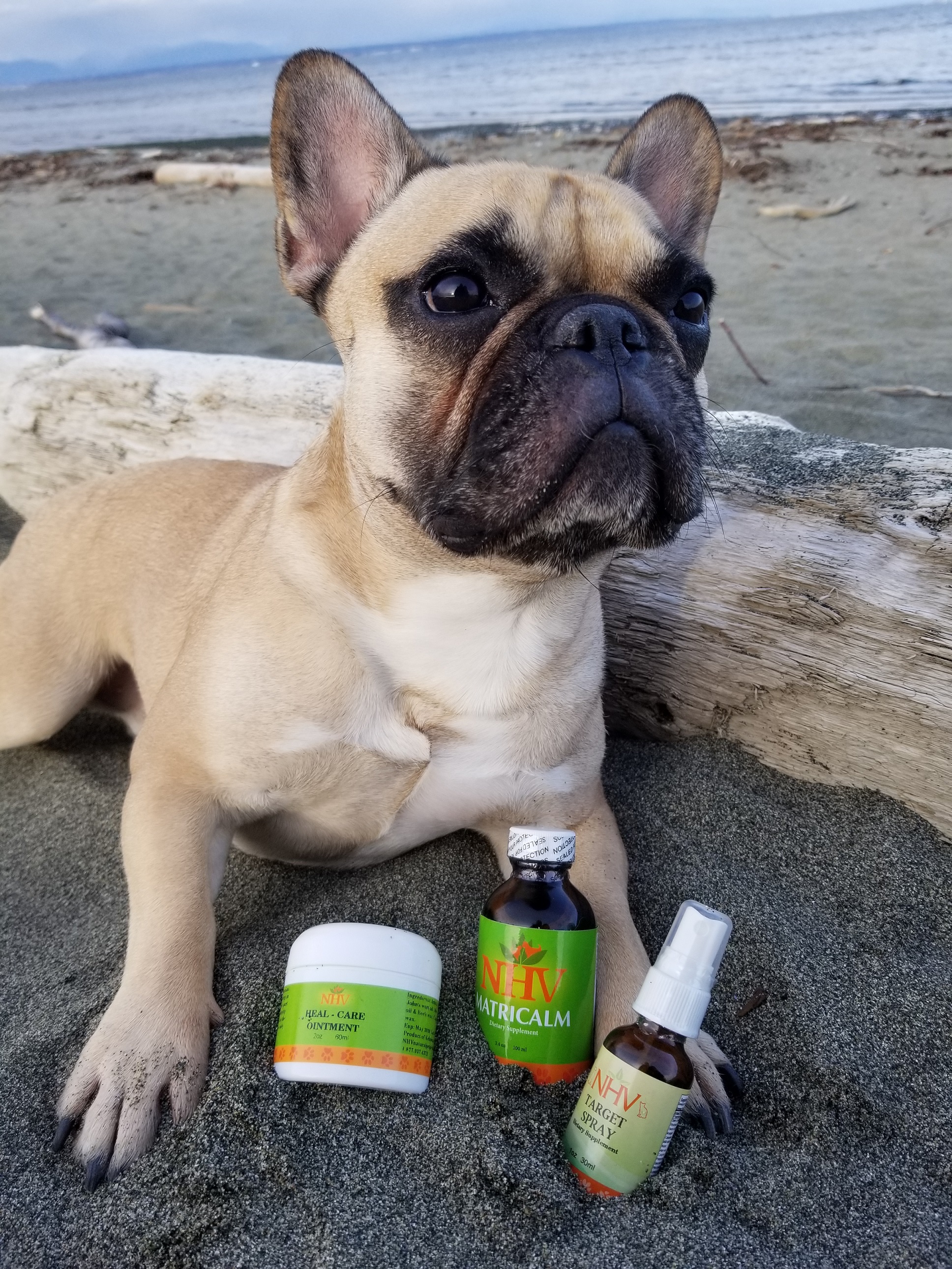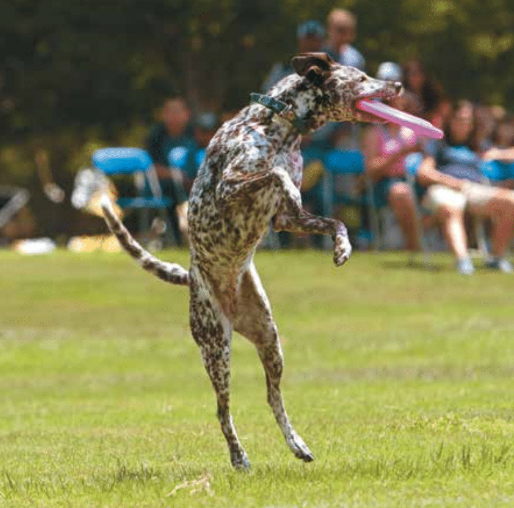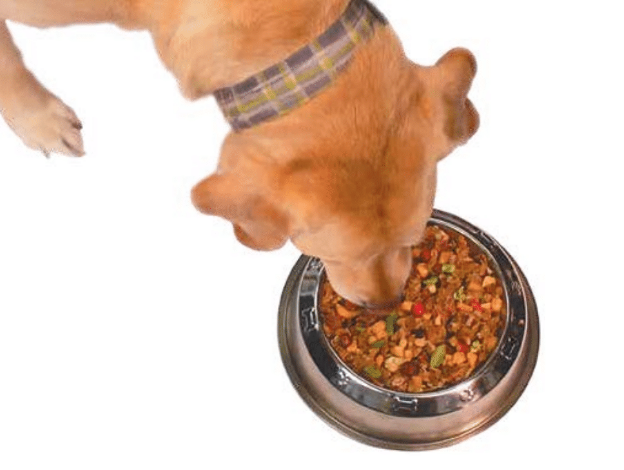Pets of All Sizes can Benefit from Antioxidants
Pet Age Staff //October 4, 2017//
BY ERIC STENSON
Antioxidants in food and in supplement form are extremely important in the suppression of free radicals, which can cause or contribute to a bevy of health problems in humans as well as pets.
According to PetMD.com, free radicals are a natural by-product of metabolism and are produced in greater than normal amounts when pets are sick, elderly, exposed to toxins or suffer from poor nutrition. Free-radicals contain oxygen and are missing an electron, which makes them highly reactive. They attack and take electrons from cell membranes, proteins and DNA. The molecule that loses an electron to a free radical often becomes a free radical itself, continuing the cycle.
Antioxidants are different, however. They can donate electrons to free radicals without becoming free radicals themselves, thereby breaking the cycle of molecular and cellular damage. Therefore, an ample dietary source of antioxidants is essential if a pet is to maintain a strong immune system throughout its
life and age in a healthy manner.
PetMD.com cites a series of studies conducted on dogs that found older dogs provided with an antioxidant-enriched diet could learn complex tasks with more success than those on a controlled diet. This, researchers hypothesized, was consistent with the assumption that oxidative damage contributes to brain aging in dogs.
Another study that used an antioxidant-enriched diet found that dogs older than 7 were less likely to suffer from age-related behavioral changes associated with cognitive decline, such as excessive licking and patterned pacing. Dogs consuming the antioxidant-enriched diet were also able to recognize their family members and other animals more easily than the control group, as well as display greater attributes of agility.
“Antioxidants are at the root of immunity,” said Maria Ringo, director of health care and co-founder of Carna4 Pet Food in Toronto. “Gastrointestinal problems, pancreatic, skin and coat—free radicals are super important for whatever happens to animals.”
Carna4 emphasizes minimally processed, synthetic-free pet foods with fresh, human-grade ingredients, including such live superfoods as sprouted, organic seeds.
“Antioxidants all work together, within the systems that need support from free radicals,” Ringo said. “All kinds of illness show up in the bod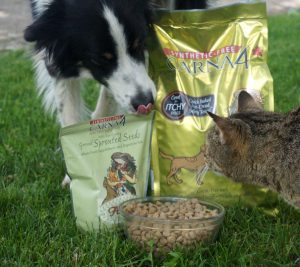 y when free radicals run rampant. Stress, chemicals, they’re what age us, what kills us.”
y when free radicals run rampant. Stress, chemicals, they’re what age us, what kills us.”
In addition to dog and cat food, Carna4 also makes a sprouted seed food topper and sprouted seed snacks. Ringo says the emphasis on whole foods makes a big diff erence regarding how pets take to her company’s products.
“Animals love the taste of actual food,” she said. “Powdered vitamins and minerals can affect palatabi
lity. Palatability is key—if pets won’t eat it, it won’t help.”
Educating Yourself
Regarding how retailers can enhance their presence in this marketplace, Ringo stresses awareness and education.
“Be constantly learning. Educate yourselves regarding natural foods high in antioxidants and that pets will eat,” she said. “You want them coming back to your store. ‘That’s great; it worked. Can you help me with this problem?’ Offer good, solid advice.”
To Dr. Bob Goldstein of Earth Animal in Westport, Connecticut, free radicals are major factors in inflammatory conditions in pets.
“It’s caused by reactions, including overuse of medicines and preservatives,” he said. “If that inflammatory process doesn’t get controlled, it can lead to things like arthritis. Pet food ingredients such as dyes and preservatives lead to the inflammatory process.”
Goldstein notes that antioxidants and phytonutrients are major allies in the battle against free radicals. Phytonutrients create the color in fruits and vegetables, he said, adding that fresh fruits and vegetables are loaded with naturally occurring antioxidants.
“They help build up reserves so anti-oxidants can neutralize free radicals and lessen inflammation,” he said. “Food is often devoid because of the pressure and
high temperatures used in the manufacture of kibble and canned foods.”
Goldstein cites his company’s Daily Health Nugget—with versions for dogs and cats—which helps provide the body with natural fortification.
“It is a fruit- and vegetable-based treat that contains antioxidants and fatty acids, that is not pressure-treated or heated in manufacture,” he said. “People are becoming much more aware that processing inactivates vital nutrients the body needs to stay healthy.”
In addition to the products it develops, Earth Animal also operates a retail store. Goldstein suggests consumers gravitate to raw, dehydrated or freeze-dried foods, citing the much less invasive production process and lack of high temperatures. Some brands the store carries include Primal, Bravo, Nature’s Variety, Vital Essentials, Steve’s and Stella & Chewy’s. WholeCran Intense, a freeze-dried cranberry supplement, and Canine Complete, an all-in-one supplement, are also among the antioxidant items Earth Animal carries.
Make the Buyer Aware
Antioxidants and their role in controlling free radicals are becoming more present in the minds of consumers, Goldstein continued.
“It doesn’t get big play, but it [free radicals] is a big inciting cause,” he said. “It is becoming more known, however, as it is in human nutrition.”
NHV Natural Pet Products of Vancouver, Canada, produces a wide variety of herbal-based supplements that feature ingredients with high antioxidant properties. Patra Da Silva, NHV’s president, mentions several important antioxidants for pets, including ones useful for specific concerns and for overall health:
• Antioxidants like vitamins A, C 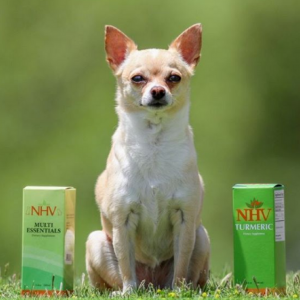 and E and minerals manganese and zinc are essential to maintaining overall health and well-being. • Coenzyme Q10 naturally occurs in the body, so there is no recommended dietary allowance since the body can make this powerful antioxidant from scratch. Sometimes, CoQ10 supplementation is recommended for pets with heart disease, periodontal disease, and immune problems, or senior pets that have a decrease in Coenzyme Q10.
and E and minerals manganese and zinc are essential to maintaining overall health and well-being. • Coenzyme Q10 naturally occurs in the body, so there is no recommended dietary allowance since the body can make this powerful antioxidant from scratch. Sometimes, CoQ10 supplementation is recommended for pets with heart disease, periodontal disease, and immune problems, or senior pets that have a decrease in Coenzyme Q10.
• Ginkgo, known for several medicinal benefits, also helps scavenge free radicals, particularly free-radicals found in the nervous system. It can be very useful for pets with any type of nervous system disease.
• Curcumin, the active compound found in Turmeric, is a powerful antioxidant that is especially beneficial in its uses against cancer. Its antioxidant effects are comparable to BHA and BHT, and vitamins C and E.
“Pet parents interested in adding more antioxidants to their pets’ diets are encouraged to use whole sources when appropriate instead of chemical supplementation,” Da Silva said. “Getting antioxidant supplementation from whole sources means that the phytochemical properties are still intact. In addition, supplementing from whole sources means pets will also receive other therapeutic benefits contained within herbs.”
Harald Fisker, president of Grizzly Pet Products in Woodinville, Washington, produces a krill-oil based anti-oxidant product for pets. The product features astaxanthin, which Grizzly cites as a very powerful antioxidant that supports immune function. It also offers excellent palatability, Fisker says.
“Krill oil is very palatable to dogs and most cats,” he said. “So much, that we actually get enhanced palatability from it in our liquid joint products, where krill oil’s main function is absorption support. Antioxidant products don’t come more natural or palatable than this.”
